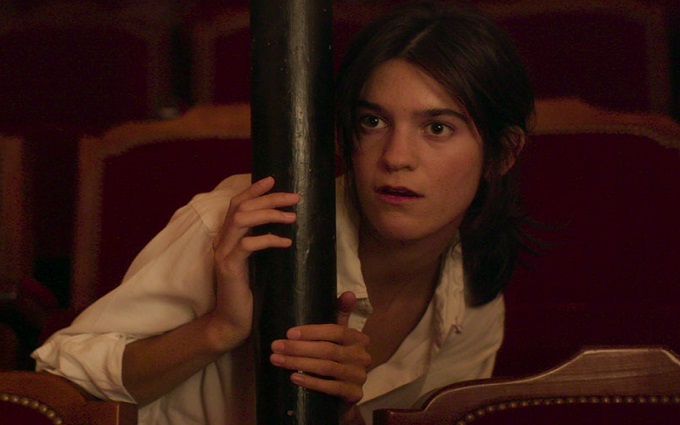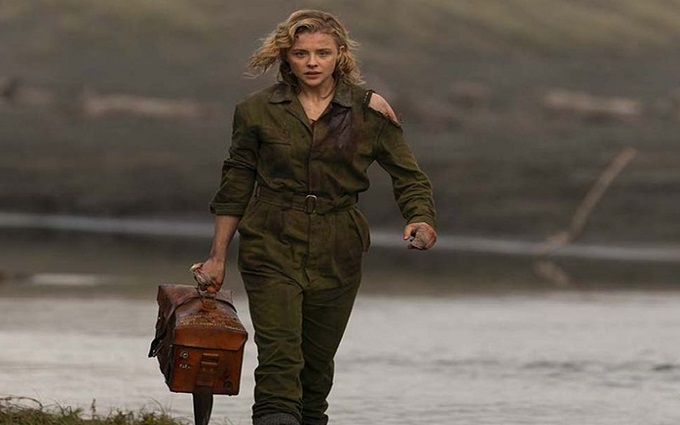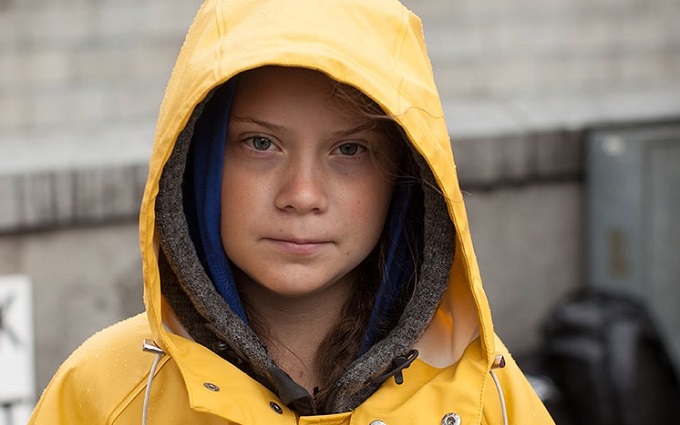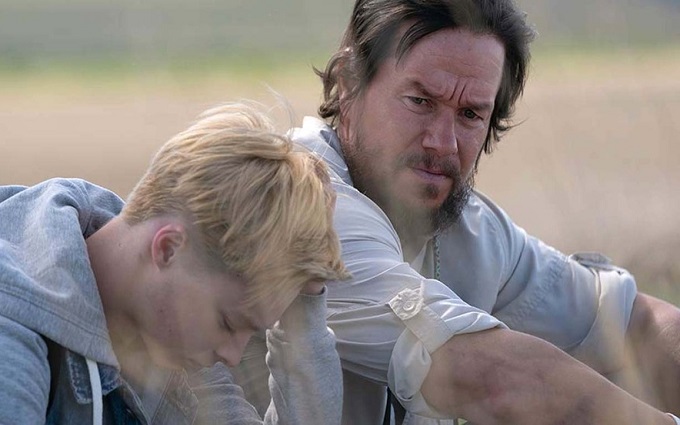The Score TIFF review

The Plot
Two small time crooks drive to a remote location waiting for a big ‘score’ and pass the time by awkwardly interacting with the sparse customers and staff of a small café. But the longer they wait for their mysterious meeting the more complicated and tense their situation becomes.
The Good
Will Poulter continues to emerge as a truly magnificent and deeply likeable talent. Having well established a firm fanbase with his excellent big screen and television work he continues to inject an affable charisma into all his performances. In The Score an increasingly rugged Poulter provides the heart and humour of the film through his performance as Troy, a kind hearted and hapless reluctant hoodlum. The comical contrast and exchanges between him and his older far more abrasively menacing partner in crime are the firm driving force behind the films story.
Alongside Poulter, Johhny Flynn provides a convincingly antagonistic presence as Mike, Troy’s bullying and quite possibly dangerous criminal compatriot. Their sparring conversations lurch from absurdly comedic to genuinely tense throughout the film providing modest charm and intrigue.
Naomi Ackie likewise works well with Poulter to give the film some awkwardly simmering romantic chemistry, playing the café’s feisty barista Gloria. Her clashes with Flynn’s caustic Mike and unlikely chemistry with Poluter’s well intentioned thug Troy sets up odd and evolving dynamics that ultimately propel he film towards a vigorous finale.
The cast are also clearly enthusiastic and uninhibited about the film’s frequent musical demands, very obviously doing their best to inject subtle meaning and soft spoken melody into their singing. It’s to their credit, especially Poulter’s, that they manage to maintain a sense of momentum and reality despite the film’s whimsical eccentricities and constantly shifting tone.
The Bad
While musicals certainly attract a massive fanbase The Score is a strange breed of hybrid between a sluggishly paced indie drama and the more flamboyant musical genre. This unexpected mashup occasionally works well, but often seems to slow the pace of the film even further as characters interrupt normal scenes with lengthy musical mumblings. The almost complete lack of choreography and oddly passive nature of character’s entirely self-contained singing make the films musical qualities often feel somewhat unnecessary. Merely serving to mostly distract from an otherwise interesting conventional drama.
Though the film moves toward an ultimately interesting climax the film is a slow burn that pads a relatively simple story with its lengthy musical refrains. While some might feel it gives the film a unique personality and a literally lyrical quality, it’s certainly a devisees experiment. The understated performances and largely muted singing voices of the cast further adds to a slightly awkward school play feel every time a character breaks off into their own detached musical monologue.
The Ugly Truth
A talented cast and the novelty factor of the film’s quirky musical offerings makes The Score a watchable but likely divisive experience. Some will consider the film a memorable oddity while other audiences may find themselves less charmed by the films slow paced and unnecessary musical refrains.
Spring Blossom Review TIFF 2020

The Plot
A 16 year old girl bored with her school routine and people her own age discovers a fierce infatuation with an older actor performing at a local theatre. That inquisitive interest soon grows into an actual relationship, giving her the more daunting and authentically adult experiences she craves. Ultimately forcing her to confront whether or not she is truly ready to leave her childhood behind.
The Good
Suzanne Lindon directs and stars in a coming of age drama she apparently scripted when she was only 15 years old. This alone immediately distinguishes the film from countless other films that deal with the fledgling love affairs of teenage girls aching to discovering something beyond the narrow confines of high school and more childish pursuits.
It’s typical for these kinds of genre films to paint their female protagonists either as innocent victims of manipulative adult desire, or alternatively as rampantly sexually teenage temptresses. It’s at least refreshing that Spring Blossom avoids these stereotypes, presenting its young heroine as a relatively normal girl on the cusp of womanhood. It’s arguably a more authentic if mundane depiction of the excitement generated by someone’s first forays into the daunting world of adult emotions.
Though the film lacks tear stained melodrama it does deliver repeatedly joyful and sweet natured musical moments. It’s enduring watching Suzanne dance down the street in celebration at learning that her affections are in fact reciprocated. Indeed as her relationship with the 35 year old actor she befriends moves forward it is played out mostly through similarly shared moments of dancing to elegant melodies. It provides the majority of the film’s romantic spirit in contrast to their mostly awkward and banal conversational exchanges.
The Bad
First love and the tensions caused by a typical adolescent impatience to grow up are both often the subject matter of sensuous and richly emotional filmmaking. Unfortunately this film is at times lacking in the authentic drama and depth that distinguishes the better versions of this overly familiar coming of age tale. Lindon’s script is a little too languid and uneventful to capture the painful lessons that first loves usually end up teaching us.
Devoid of furious family drama, passionate sexual exploration or cruel life lessons the film doesn’t feel all that visceral or important. This particular age gap romance is mostly populated by banal breakfast conversation and random dance sequences. It’s a light and mostly pretty portrait of a fairly restrained love affair, but also entirely unremarkable.
Writer, director and star Suzanne Lindon penne the script when she was just 15, lending it a certain authenticity at least. But while sharing coffee and polite conversation with an adult can be an electrifying experience for an actual teenager, that doesn’t translate to screen for a more mature audience. Viewed from an adult perspective and without any particularly vivid insights, it appears more trivial than tantalising.
The fact that the film can barely sustain a running time a little beyond an hour perhaps gives some indication of how little the film ultimately has to say.
The Ugly Truth
Spring Blossom is an easy watch and a serves as a pleasant stroll through familiar coming of age tropes. Frequent musical interludes give a little extra elegance to a very simple tale otherwise mostly lacking in drama. The film is light and pretty as intended, but also unremarkable.
Review by Russell Nelson
Shadow In The Cloud Review TIFF 2020

The Plot
On an ominous night in the midst of World War 2 a female soldier hitches a ride on a supposedly routine cargo delivery aboard a flying fortress bomber plane. She’s charged with protecting a deeply mysterious top secret package. Flying through the stormy night and largely confined to a perilously positioned gunner’s turret, she discovers with growing dread that they are not alone in the skies. With enemy fighters and another mysterious ‘passenger’ putting the safety of the crew and her mission in constant mortal danger.
The Good
The film owes a great deal to a rich legacy of fantasy horror. Borrowing most obviously and explicitly form The Twilight Zone and Gremlins. It perfectly executes genre clichés in ways that are equally original and memorable. It’s a perfect combination of the creeping paranoia and lurid sensational thrills of the very best action packed pulp fiction. The film swiftly proves it self to be a worthy new addition to the best genre classics.
Much like the wildly nostalgic and popular Stranger Things, this film oozes a quintessentially 80’s aura of stylish magical mayhem. A brooding and then blistering paced electronic soundtrack injects a modern sense of urgency into an iconic period setting and elevates the film’s dizzying action sequences into even greater heights of excitement. It’s angry, anarchic and cool in the most timeless ways.
The film looks memorably distinctive, thanks to vintage cinematography drenched constantly in shadows and saturated neon colours. It gives a lurid nightmarish quality to a unique setting that is by turns horrifically claustrophobic and stomach churningly exposed to the vast dangers of being 30,000 feet from the safety of solid ground. Those fearing that the film will rely on the low budget horror tactic of keeping action restrained exclusively to an obviously modest sized set will be shocked by just how effectively the film breaks free of those confines.
Chloe Moretz has a proven track record of genuinely shocking audiences with performances which routinely juxtapose her youthful pretty features with graphic visceral action. This performance further enshrines her status as the true successor to genre icons such as Sigourney Weaver. Moretz’s surprisingly stoic and shockingly unstoppable flight officer heroine deals with every form of horrifying aerial adversity imaginable with virtually superhuman awesomeness.
It’s difficult to avoid noticing the countless parallels between Moretz character and Weaver’s career defining role as Ripley in the Aliens saga. She’s a lone voice of seemingly unbreakable feminine wisdom facing up to all sorts of monsters with unflinching bravery and an impressively furious determination to survive.
Moretz commands the screen during its painfully tense moments and carries it joyfully into insane action sequences that would undoubtedly promote shrieks of laughter and wild cheers of approval from any packed cinema audience.
For anyone who utterly adores Stranger Things this film will be yet another delightfully well received flight of fantasy horror. Action packed and effortlessly cool it is a wildly fun embodiment of the true spirit of ‘Midnight Madness’, TIFF’s weird and wonderful iconic late night cinema dreamland.
The Bad
While the film will be a giddy delight for many, admittedly some will find the film’s most outlandish action sequences to be a little too implausibly silly. Having moved with a slow and convincingly menacing pace the film suddenly explodes into frankly cartoonish levels of mayhem that defies the law of physic in perhaps a few too many obvious ways.
For many this uninhibited abandonment of any sense of reality may ask a bit too much of their imaginations and sacrifice the film’s early tension in favour of more generic super-hero fair. Those hoping for the film to lurch into even darker and more claustrophobic directions will perhaps be a little disappointed to see it pull back from horror chills in favour of more cheerful fantasy adventure.
The film nosedives unashamedly into a series of unexpected plot twists and undeniably bonkers set pieces. Those wildly weird manoeuvres may be a little too extreme for some with a more sober sensibility. Those embarking on this quite literal flight of fantasy should be warned that it will certainly catapult them into some very crazy places. You may need to hang on tight to your suspension of disbelief during the film’s most insanely turbulent twists.
The Ugly Truth
Shadow In The Clouds is an instant cult classic, pulsing with a brooding soundtrack, clever visuals and unashamedly joyous performances from a cast fully committed to delivering buckets of schlock B-Movie delights. It further enshrines Chloe Moretz as an unlikely but indisputable action superstar. Overall it’s a gritty and gleeful piece of guilty pleasure genre escapism destined to leave audiences woozy and wonder-struck.
Review by Russell Nelson
I Am Greta Review TIFF 2020

The Plot
The journey of 15 year old Greta Thunberg from sitting alone on the streets outside the Swedish parliament protesting climate change to being a globally recognised and deeply controversial figurehead for Climate activism is captured in an extensive carefully curated documentary. Showcasing her headline grabbing speeches, private exchanges with world leaders and the more mundane realities of travelling the world on her never ending mission.
The Good
Whatever people’s existing opinions about Greta Thunberg, her significance as a surprisingly young global talisman for climate change concerns makes her a fascinating subject matter. Her distinctively diminutive and childlike appearance makes her equal footing inclusion alongside the ranks of world leaders at international conventions all the more bizarre and unexpected. This account of her rapid ascent from a troubled truant schoolgirl to newfound iconic status as the abrasively demanding voice of ‘a generation’ is an interesting insight into the Thunberg phenomenon.
With seemingly unlimited access this documentary presents a complete if clearly well-polished portrait of Greta. Giving audiences a first-hand perspective on her surreal daily existence. It allows audiences to gain at least some impression of what happens in between Greta’s relentless public speaking appearances.
One of the most common accusations made about Thunberg is that she is merely being used as a childish mouthpiece for other people’s words. This documentary proves to be fairly effective in dispelling that suspicion by repeatedly showing seemingly authentic examples of Thunberg writing her own speeches with a literally obsessive attention to detail. While it won’t entirely discredit the argument that she is being manipulated and compelled by adult handlers it at least lends some credibility to the possibility the Greta may be speaking in her own authentic voice.
The film showcases plenty of Thunberg’s most infamous public speeches combined with more private footage of her in candid conversation with her father, political elites and fellow activists. Those that agree with her frequently hysterical pleas for change will welcome this convenient archive of her greatest hits. Likewise those who wish to challenge her supposed wisdom will find plenty of ammunition as well.
This film serves a valuable purpose for anyone looking to uplift or undermine Greta Thunberg. Making it compelling viewing for both polarized sides of the Climate Change debate.
The Bad
Greta Thunberg remains a deeply divisive figure. Despite the fevered global adulation she receives there are still many people that dispute her grim prognosis for the future of mankind, dismiss the utility of the school strike movement she inspires and deeply question the immense international attention and reverence given to an autistic adolescent.
This documentary is candid in admitting that Thunberg had a pre-pubescent nervous breakdown triggered by her exposure to apocalyptic warnings about climate change and the risk of imminent ecological disaster. The combination of these fears and Thunberg’s Asperger syndrome had a devastating almost fatal effect on her. As Thunberg and her father explain it forced her to abandon school for an entire year, starve herself to the brink of serious illness and barely speak for three years.
Though the film seems to hold out Thunberg’s personal struggles as sign of heroism, unfortunately many will still see it merely as emphatic proof that Thunberg is even less well equipped than an average child to emotionally and mentally handle the responsibilities of being catapulted onto the global stage as a de facto world leader on a fiercely divisive political issue.
Critics will also certainly rush to point out that despite the endless rhetoric about changing the world and angry ultimatums to political leaders, the film like Thunberg herself seems to consistently fail to articulate a single concrete achievement.
At times it seems as if the only thing that Greta’s never ending world tour has actually accomplished is creating a near cult like and clearly unwelcome celebrity status for Greta herself. Watching her awkwardly posing for selfies with enthusiastic well-wishers, she is constantly being congratulated for being ‘Greta’ rather than any actual meaningful accomplishment. Her discomfort at the clearly crushing weight of pressure and social attention heaped upon her is at time obvious and a little unsettling.
In particular repeated scene’s where a visibly distressed Thunberg refuses to eat and her permanently strained and exhausted demeanour makes for disturbing viewing. For some people even her seemingly malnourished extreme Vegan diet could be taken as a cause for concern. When she does eat on screen Thunberg seems to subsist on dry homemade pasta flavoured with a little salt. It’s actually a relief to see her reluctantly forced to eat a banana at least once.
The overall impression the film gives is that Thunberg is a lonely and troubled child, welcoming the approving glow of media attention and strangers praise but also worryingly burdened with the exhausting realities of maintaining that status while wrestling with her own overwhelming fears.
The fact that the film never seriously attempts to address the scientific or political debate about Climate Change and instead focuses so exclusively on Thunberg’s personal journey and growing celebrity status, does very little to dispel the sense that the film is merely another piece of well-polished self-promotion.
Instead of using this documentary as a platform to convince sceptics of the validity of Greta’s incessant climate concerns, it merely bombards audiences with repetitive rhetoric about’ time running out’ and a need to do more to fix the problems. The film never offers any actual solutions and in truth doesn’t even properly articulate what the problems specifically are. A total failure to make any scientific arguments at all, leaves all the frequently hysterical calls to action as little more than hollow largely meaningless words.
During one memorable private exchange with President Emanuel Macron, Thunberg is asked directly by the French leader what she most wants world leaders to actually do. Her response as presented is a simple regurgitation of another typical ‘it’s our last chances to save the planet’ soundbite, immediately followed by a casual reminder that first world countries have to do this because the third world has a right to improve their quality of life that excuses them from any responsibility for the environmental impact they disproportionally create.
It will be frustrating for those that strongly disagree with Thunberg’s positions to see her rarely if ever directly confronted with a legitimately critical response. When the film does present a collection of negative soundbites attacking Greta’s positions, it’s used purely as a tool to garner sympathy and the more coherent arguments against her are simply never answered. The film remains mostly a steady parade of politicians and celebrities merely nodding at her in polite approval.
Thunberg herself openly questions during this documentary why she keeps being invited to give angry sometimes teary eyed speeches when it seems nobody is really listening and they’re all just playing along for the cameras. She suspects they’re only indulging her for the sake of good photo op. Sadly for once her assessment of the situation may be painfully accurate.
The Ugly Truth
This documentary will naturally by received by those who consider Thunberg to be an inspirational young hero as a proud celebration of her rise to international prominence and pop culture superstardom. In sharp contrast others will see it as a shocking confirmation that Thunberg is at best a misguided and especially vulnerable child being unfortunately exploited to spew mostly meaningless rhetoric in service of an extreme political agenda fuelled by needless fearmongering. In truth the film remains compelling and useful viewing whichever side you belong to.
Review by Russell Nelson
Good Joe Bell Review TIFF 2020

The plot
Joe Bell is a man on a mission. Marching across America speaking to anyone who will listen about the danger of bullying and the devastating effect it had on the life of his teenage son Jayden. Jayden grappled with the harsh realities of being openly gay in a rural American town. A situation as confusing and difficult for his father, leading to him search the open road for answers and perhaps a redemption of his own.
The Good
Mark Wahlberg is well cast as the rugged American archetype struggling to reconcile his undoubted love for his son with the deep discomfort of confronting the public abuse he suffers. It’s a raw performance that strenuously flexes his dramatic talents. Wahlberg’s performance gradually reveals layers of a man struggling to find meaning and purpose in tragedy, literally walking in search of this healing and to escape painful realities.
The film doesn’t shy away from showing Joe Bell’s imperfect nature. Though he clearly intends to be a good father his temper and undue concern for the opinions of others frustrates his efforts to be the supportive and loving parent he intends to be. It’s important for the film to show the character confronting his own culpability and shortcomings as he marches across America trying to teach those that will listen the importance of avoiding toxic intolerance. It lends greater weight to the films message.
Alongside Wahlberg, Reid Miller is a young actor who does exemplary work in making Jadin Bell by turns infectiously endearing and tragically afflicted by abuse. Witnessing the pairs’ real and imagined exchanges depicts a powerful example of love as it was and as we wish it could be. It’s especially poignant as a specific portrait of the challenges that face gay children and their families trying to process the world’s often hostile reaction to ‘difference’.
The film explores the complete interwoven narrative of one family’s journey, from the torment that Jadin suffers through its awful consequences and the cathartic aftermath. Moving back and forth smoothly between different points in this journey is perhaps more effective than a simply linear retelling would have been. It allows the film to be more reflective throughout.
The Bad
Life is often deeply cruel and disappointing, its stories rarely have neat endings or obvious meanings. This film sadly has to work within the constraints of real events which are repeatedly tragic and seemingly senseless. It’s painful viewing and sadly incapable of fully giving audiences the answers and catharsis they may crave. The film has noble intentions but it’s more than any one piece of cinema can possibly achieve to rid the world of intolerance or explain why love is not always perfect or enough to save us.
The film explicitly speaks to the fact that those willing to listen to messages of tolerance and compassion aren’t the problem. So it’s hard perhaps for a film like this to reach the audiences who would most benefit from its message.
While the film speaks to an important issue perhaps the immeasurably complex and deeply personal nature of such topics makes it simply impossible for just one account to adequately sum up that type of lived experience. For this reason the film will undoubtedly resonate more with some people than others.
The Ugly Truth
Good Joe Bell is a sincere exploration of the devastating impact of bullying and the struggle to find acceptance and to accept those we love as they are. Though like life it is an imperfect journey and scared by tragedy it speaks to audiences with a heartfelt weight of loss and the important lessons it should teach us.
Review by Russell Nelson